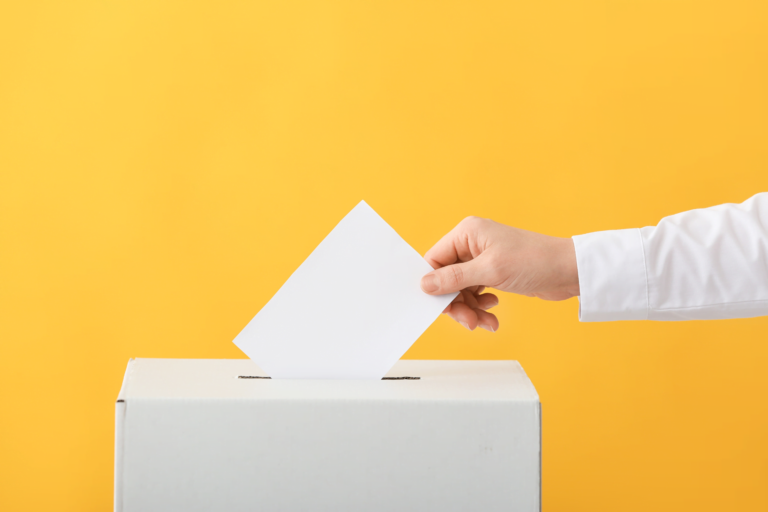The Science Behind Behavior Change: What You Need to Know
Change is inevitable; life’s only constant. Whether change is happening to us, and we need to adapt, or we are setting out to shift habits, mindsets, and behaviors, change is within each of our grasp. The old adage “you can’t teach a dog new tricks” has no scientific basis.
In fact, research shows that we are all able to replace detrimental behaviors with healthier ones. This might involve the adoption of new behaviors, enhancing an existing behavior, or completely ceasing a negative behavior.
The behavior change process can be voluntary, as in the case of self-improvement goals, or it might be required, as in the case of managing chronic diseases.
Understanding behavior change is crucial for various aspects of life, including health, education, and social development. It plays a critical role in implementing effective interventions to promote healthier lifestyles, improve academic performance, and nurture more positive social interactions.
By understanding the underlying mechanisms of behavior change, we can shape targeted and efficient strategies to achieve sustainable changes.
This understanding becomes particularly important when dealing with issues such as addiction, obesity, or mental health disorders, where behavior change can significantly improve quality of life.
However, it’s important to remember that you don’t necessarily need to have a clinical condition to start this process. We all have things we want to improve or behaviors we wish we would change. Today, I’m here to encourage you and tell you that it’s completely achievable – you just need to start by knowing the basics. Let’s get to it.
Theoretical Foundations
Behavior change models are foundational to the understanding of human psychology. They provide a structured approach to evaluating the complex process of behavior modification.
These models consider a wide range of factors, including an individual’s readiness to change, the social environment, past attempts at change, and the benefits of new behavior. Using these models, psychologists and behavioral scientists can predict and influence behavior to promote healthier habits, improved mental health and overall well-being.
Psychological Theories
Behaviorism
This psychological theory posits that behaviors are learned through conditioning, either classical (associations) or operant (rewards and punishments).
Behaviorism suggests that all behaviors can be traced to these specific conditions, making it a key foundation for understanding and inducing behavior change.
Cognitive-Behavioral Theory
This is an evolution of behavioral theory, which incorporates cognitive psychology. It proposes that our thoughts and perceptions influence our behaviors.
Cognitive-behavioral theory is often used to help people challenge and change negative thought patterns, resulting in more positive behavioral outcomes.
Biological Influences on Behavior Change
Neuroplasticity
This is the brain’s ability to reorganize itself throughout a person’s life by forming new neural connections.
Neuroplasticity allows the neurons in the brain to adjust their activities in response to new situations or changes in their environment, which can play a role in a range of behavior changes.
Hormonal Impact
Hormones, like serotonin and dopamine, play a crucial role in influencing our mood, emotions, and consequently, our behaviors.
Understanding the hormonal impact on behavior can help devise strategies for behavior change, such as interventions that boost the production of ‘feel-good’ hormones.
Factors Influencing Behavior Change
Behavior change is a complex process and is influenced by a variety of individual and social-environmental factors.
Each person is unique, so your mind is an entire universe filled with possibilities. Therefore, to determine the factors that specifically influence you, you must consider different options and identify the ones that mostly affect your life. Let’s take a look at some of these factors.
Individual Factors
Motivation
It is the driving force behind behavior change. An individual’s desire to adopt new habits or abandon old ones often hinges on their level of motivation. It can be intrinsic (coming from within the individual, like personal satisfaction) or extrinsic (coming from outside, like rewards or social recognition).
Personality Traits
Every individual possesses unique characteristics that affect how they perceive and interact with the world. Some traits, such as openness to experience or conscientiousness, may facilitate behavior change, while others, like rigidity, may pose challenges.
Social and Environmental Factors
Social Support
The people around us significantly influence our behaviors. Encouragement, empathy, and practical help from friends, family, or social groups can make the journey of behavior change easier and more sustainable. Research has shown that enlisting the support of caring people can serve as a catalyst for change. Generally, it is extremely difficult to make strides without support. Accountability and a caring community can help us advance desired changes.
Environmental Triggers
Our surroundings also play a crucial role. Factors like the availability and accessibility of resources, physical cues, and the cultural norms of a place can either promote or hinder behavior change.
The Role of Habits
Habits are automatic responses that are wired into our brains through repetitive actions. Once formed, they can influence our behavior without our conscious thought, allowing us to perform routine actions efficiently. When it comes to behavior change, understanding our habits is crucial.
This is because habits, once ingrained, can be difficult to break, and new, healthier habits can be challenging to form. However, with perseverance and strategic approaches, it is possible to replace detrimental habits with beneficial ones, leading to positive behavior changes.
Recognizing the powerful role habits play in our daily activities can help individuals make conscious decisions that support desired behavior changes, thereby promoting overall well-being and lifestyle improvement.
Habits are formed through a process known as a ‘habit loop’, which comprises three elements: the cue, the routine, and the reward. The cue triggers the brain to perform a certain routine that eventually leads to a reward. Over time, this loop repeats itself, solidifying the behavior as a habit.
On the other hand, to break an unhealthy habit, one must first identify the cue and reward that fuel it, and then consciously alter the routine. While it’s challenging, understanding the habit loop and being mindful of our actions can lead to successful habit alteration.
Positive habits are cultivated in the same way as unhealthy ones. The key is to establish consistent cues and rewards that promote the desired behavior. Over time, as the routine is repeated in response to the cue, it will solidify into a positive habit.
Strategies for Behavior Change
Behavior change strategies can be effectively pursued through several techniques.
Goal Setting
Goal setting is a fundamental step, and it is recommended that these goals be ‘SMART’: Specific, Measurable, Achievable, Relevant, Time-bound. SMART goals provide a clear path to change with concrete steps and a set timeline.
SMART Goals
Instead of vague aspirations, SMART goals set clear targets to aim for. For example, instead of stating a goal to ‘exercise more,’ a SMART goal would be ‘to walk for 30 minutes every morning before work for the next month.’
Implementation Intentions
This is a strategy for planning when, where, and how a person will take action towards their goal. This makes the behavior automatic when the planned situation arises, reducing the need for willpower or motivation.
Self-Monitoring
Self-monitoring refers to the process of tracking one’s behavior, a powerful tool for increasing awareness of habits and triggers. It can be as simple as keeping a journal of daily activities or using digital tools and apps for tracking.
Reward Systems
Finally, reward systems are vital for behavior change. They provide motivation and positive reinforcement.
A reward can be anything that the person finds enjoyable or satisfying, and often works best when it is immediately given after the desired behavior is performed. It’s important to ensure the reward does not contradict the goal (like eating a large dessert after a small workout).
Interventions and Therapies
Behavioral and cognitive therapies are interventions applied in psychology to help individuals modify their behaviors or thought patterns.
Behavioral therapy works on the principle that all behaviors are learned and can be unlearned or modified. It focuses on understanding how our environment influences our behavior and uses techniques like positive and negative reinforcement to foster desirable behavioral changes.
This approach is often applied in treating conditions like addiction, phobias, and anxiety disorders.
Cognitive Therapy, on the other hand, targets maladaptive thinking patterns. It operates on the belief that distorted or irrational thought processes lead to emotional distress and maladaptive behaviors.
Through cognitive therapy, individuals are taught to identify and challenge their negative thought patterns and replace them with healthier, more positive beliefs. This therapy is particularly effective in addressing mental health disorders such as depression and generalized anxiety disorder.
Challenges in Behavior Change
Behavior change is a complex process encumbered by various challenges. Firstly, resistance to change is a common hurdle. This resistance can stem from fear of the unknown, lack of perceived benefits, or comfort in established routines.
Secondly, relapse prevention poses another challenge. Without sustainable strategies and ongoing support, individuals may revert to their old patterns of behavior. Relapse can result from stress, exposure to triggers, or a lack of coping mechanisms.
Lastly, cultural and social barriers contribute significantly to the difficulty in behavior change. Societal norms and cultural expectations can often discourage change, especially if the desired behavior is not widely accepted or understood in a person’s social community. Understanding these challenges is key to developing effective and comprehensive behavior change strategies.
A Take-home Message
Understanding the science behind behavior change is pivotal for anyone keen to make positive changes in their life.
To effectively implement behavior change strategies, one must delve into the psychological and neurobiological mechanisms that influence our habits and behaviors.
At the same time, recognizing and leveraging these aspects can make the journey toward personal improvement more manageable and successful.
As we continue to explore this fascinating topic, we invite you to join us in this journey of self-discovery and growth. Don’t wait for the perfect moment to change, create it.






